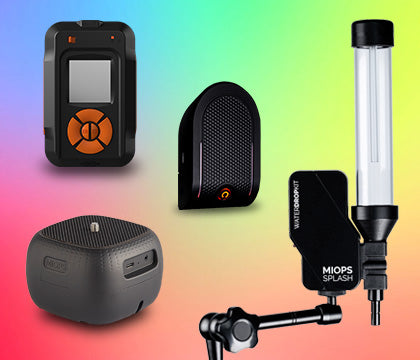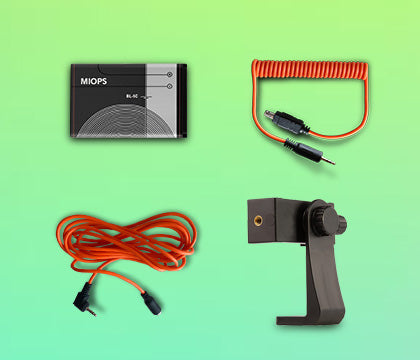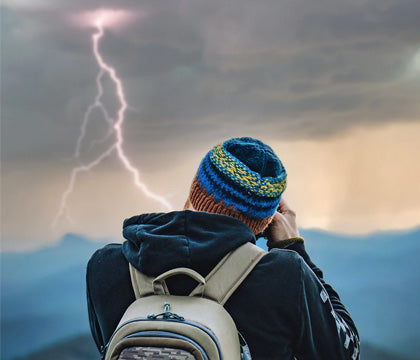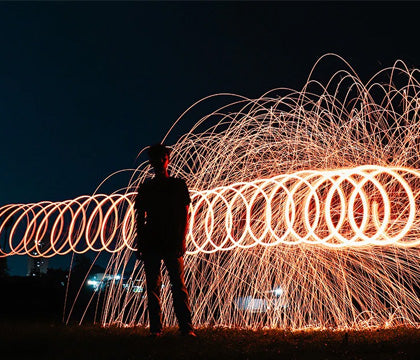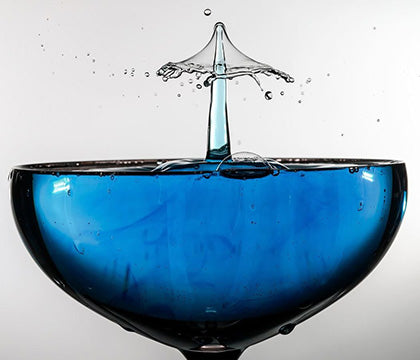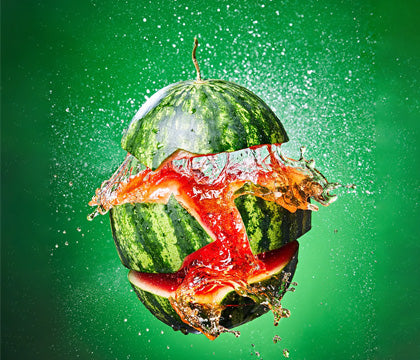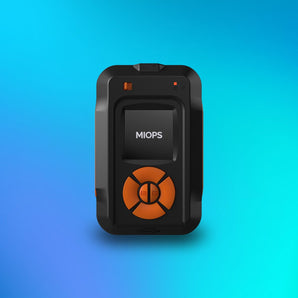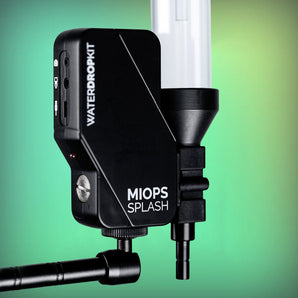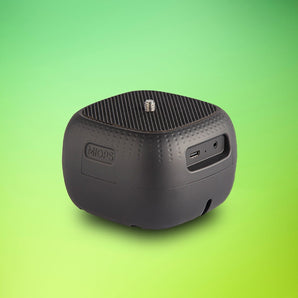Night photography is fun because, in the day time, we only have one light source, that is, the sun, but in the night, neon signs, led boards, street lights, and traffic lights become our light sources. These lights have different colors and intensity, making everything look spectacular.
Most photographers shy away from night photography. They think it's very difficult, but if you know your camera and with some practice, it's as easy as day time photography. This tutorial talks about tips and tricks for night photography.

Equipment
You do not need special equipment for night photography - the only must-have gear is a tripod. A tripod is essential to prevent camera shake from the slow shutter speeds we'll need to capture the low night lights. You can also use the MIOPS Smart+ camera trigger to make amazing shots and save time.
A full-frame camera will produce less grain and noise compared to a crop sensor camera. A fast lens with an f/1.8 or f1.4 is also great for night photography. A fast lens lets you shoot at higher shutter speeds. If you don't have these, don't worry, you can still shoot in a way that doesn't produce much grain - we also reduce this during post-processing using dedicated software.
A remote shutter release cable is also handy as it will also prevent camera shakes.
What to shoot
Now that we have all the required equipment, the second question is what to shoot at night. Well, you have many options.
Cityscape: Cityscape is a favorite of many photographers. At night, buildings come alive with different colored lights, and capturing them is very satisfying. If your city is near water, try capturing its reflection in the water.
Buildings and Monuments: Every city has famous buildings and monuments. In the day time, it looks ordinary, but at night it starts looking fabulous due to lighting - plus there are fewer tourists at night.

Portraits: If you are shooting portraits in the daytime only, you are missing the fun of night-time portraits. At night we have different colored lights around our subject, making it possible to capture entirely different looking portraits.
Star Trails and Milky Way Galaxy: You can also shoot star trails and the Milky Way galaxy, but you will have to travel far from any city lights where there is no air and light pollution.
Light trails are also an exciting subject for night photography. You can also go to the local markets and capture city life.

How to shoot
There are two kinds of subjects: still subjects like buildings and monuments, and moving subjects like portraits or city life. For still subjects, set the ISO to the lowest number, so your picture isn't grainy, and set a narrow aperture like f/8 or f/11 to get end to end sharpness in the frame. Make sure your camera is on a tripod and connected to a shutter release cable. (Pro tip: in a pinch, if you forgot your shutter release, you can use your camera's self-timer to active the shutter release and prevent camera shakes). Whether your shutter speed is one second or longer, you will always get a sharp picture because the building is still.
But if you are capturing a moving subject, you need to use a high ISO and a wider aperture so that you can get a high enough shutter speed to freeze your subject. As a rule of thumb, your shutter speed should be equivalent to the focal length of your lens. This means that if you are shooting at 100mm, your minimum shutter speed should be 1/100 seconds. If you are on crop sensor camera, add the crop factor in the above calculation. If you are not familiar with the crop factor, just multiply with 1.5. So if you are using a 100 mm lens on a crop body, your minimum shutter speed should be 1/150 seconds.
There is a third situation where your subject is moving, and you want to show movement. You'll want to use a slow shutter speed that will create light trails. Again a tripod and shutter release cable is a must.

Things to remember
There are a few points which you need to remember while doing night photography.
1. Shoot in RAW: Always shoot in raw because low light produces more grains. With a RAW image, it's easier to reduce grains compare to a jpg file. Also, if you lose details, it's easy to recover these with RAW files.
2. Use a tripod and remote cable: A tripod is a must for night photography because, most of the time, you are shooting with a low shutter speed. It is incredibly difficult, if not impossible, to capture a one-second exposure handheld without shaking the camera. In short, use a tripod, and don't forget to use a remote shutter cable to prevent camera shake.

3. Don’t afraid to increase ISO wherever required: When you are shooting handheld, or your subject is moving, and you need a high shutter speed, don't be afraid to increase the ISO. It's easy to reduce the grains with software in post-processing, but it's not possible to fix a blurry photo due to camera shake.
4. Go for Manual Exposure: Always shoot in manual mode, so you have more control over your exposure. Aim to expose for highlights - if you lose the details in highlights, it's impossible to bring them back.

5. Bring an artificial light: If you are planning to shoot portraits it's a good idea to bring a flash. With a flash, you can expose your subject properly. If you have a wireless flash, it would be even better. And always carry a torch/flashlight in case you have to change lenses or change your camera settings in the dark.
Take impossible photos by turning your camera into a high-speed capture device!
MIOPS SMART+
6. Use lens hood: Use a lens hood to prevent lens flare. It also helps protect your lens.

7. Get creative: Use your imagination to take creative shots - like if you find a water puddle, get low, and use it to capture the reflection of a monument. Or use your mobile screen in front of your camera to capture the reflection. For portraits, you may use gels on your flash to create moody portraits.
So take your camera out, and let's take amazing photos tonight!
Related Article: How to shoot car light trails with MIOPS Mobile Remote?
About the Author
Ramakant Sharda is an author, iOS App publisher, passionate photographer and a MIOPS Ambassador based in the beautiful “Pink City” of India, known as Jaipur. His work has been published in various magazines, newspapers, and blogs. He has published three Coffee Table Books, he writes about photography and also teaches photography in his workshops. Check out his website http://ClickManic.com to see the masterpieces created by him or download his free app for iPhone and iPad “30 Days to an Ace Photographer“.


